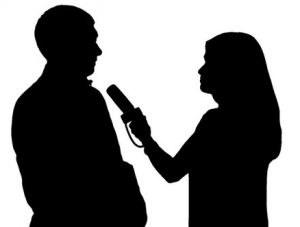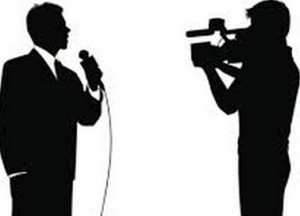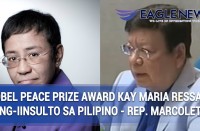 QUEZON City, Philippines (September 10) – Aside from credibility and a well-known name for news, one of the things that media companies have to consider in order to be successful in the media industry is their ethical standards. Anyone of us can make news but not all of us can make it worthy of public consumption. A media practitioner must learn how to handle every single thing that they encounter and must give their full honesty and balance reporting to the public so that they may gain the trust of their audience.
QUEZON City, Philippines (September 10) – Aside from credibility and a well-known name for news, one of the things that media companies have to consider in order to be successful in the media industry is their ethical standards. Anyone of us can make news but not all of us can make it worthy of public consumption. A media practitioner must learn how to handle every single thing that they encounter and must give their full honesty and balance reporting to the public so that they may gain the trust of their audience.
 Every news report is supposed to be fair, but what’s bothering is that some reports and reporters are being accused of being biased.
Every news report is supposed to be fair, but what’s bothering is that some reports and reporters are being accused of being biased.
One of the cases that are actually being seen as one of the most reason reporters are being accused of being biased are their sources. An article containing tips on how to be fair in news reporting stated that a media practitioner must avoid anonymous sources for it could be wrong or biased. As a media practitioner, they said that a reporter should ask himself if the information would be beneficial to him especially if the source was the one who approached him in the first place.
Another case is that when it comes to spin doctoring, we all know that it is the last resort of every individual not to undergo some mass prejudice because of their alleged wrongdoings that concerns the public. Spin doctoring, like we all know could actually mislead people and might get them astray into another world of idea where misconceptions and confusions about things that aren’t proved yet take place. It is indeed unusual for some people to not believe nor have any logical reactions with some issues brought by spin doctoring, because some people are already depending their beliefs in media. What media declares to be good will be good and, what media declares to be bad will automatically be bad for them. That is one of the many purposes of spin doctoring, to alter the idea of the public, and if we are to alter the public’s mind just to get their sympathy or their approval – which cannot be considered as ethical – that is not ethical reporting.
But let us not be biased here, let’s take a look at the different angles of biased reporting, some may actually say that not every biased reporting are bad, they are like white lies, they seem to be logically wrong but are ethically right.
 As Mr. Poulson, an associate director of Michigan State University’s Knight Center for Environmental Journalism asserts that the key is for journalists to manage those biases and to be transparent about them. If you’re gonna take a look at it, it may seem that Mr. Poulson is agreeing to biased reporting but if we are going to take a deeper look in his stand, it will be different for he also stated “Perhaps its time for journalists to admit a bias toward a clean, sustainable environment.”
As Mr. Poulson, an associate director of Michigan State University’s Knight Center for Environmental Journalism asserts that the key is for journalists to manage those biases and to be transparent about them. If you’re gonna take a look at it, it may seem that Mr. Poulson is agreeing to biased reporting but if we are going to take a deeper look in his stand, it will be different for he also stated “Perhaps its time for journalists to admit a bias toward a clean, sustainable environment.”
Such a strong statement of bias-acceptance should raise hackles. But it is important to distinguish that Poulson seems to be being pretty specific about what kind of “bias” he human goals” is talking about here. He seems to describe a sense of respect for “worthy human goals” based on evidence and investigation, rather than a bias in relation to any single story or single piece of evidence.
As Poulson writes, should keep other biases-all deeply held principles that might factor in their journalism –open to being disapproved. (Ashford, M., 2010)
As professional media practitioners, we are very much aware that we are going to face some situations that will test our media ethics, we do know it very well that every decision we are to make will always affect and reflect our career especially what and who we are as media professionals.
Media ethics on the other hand is a big deal when it comes to providing facts to people especially when we are talking about the things beyond things. People are always looking for truth whether it is good news or a bad news; people will always look for a sincere and credible reporting.
 According to one of the most trusted information giver in these days:
According to one of the most trusted information giver in these days:
“Truth telling is crucial in media ethics as any opposition of truth telling is considered deception. Anything shown by the media whether print or video is considered to be original. When a statement is written in an article or a video is shown of a public official, it is the original “truthful” words of the individual official themselves.
What sets responsible reporters apart from irresponsible and careless reporters is that they can build good and reputable news to offer to public that will serve as a standard of a rational and solid news reporting and can definitely maintain the company’s respectful and sincere image when it comes to being sensible towards bringing news to people.
Good ethical reporting will uphold the reporter’s and the company’s credibility and will always be a reminder that they are only for the truth and nothing but the truth. It might be a cliché but it is what media ethics and reporting is, to uphold and to stand with what is right and what is genuine.
Sources:
imediaethics.org/can-media-bias-ever-be-good-the-ethics-of-environmental-bias/
media.about.com/od/mediaethics/
Wikipedia.org/wiki/Media_ethics
(written by Donna Marie Rodriguez, edited by Jay Paul Carlos, additional research by Lovely Ann Cruz)








